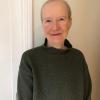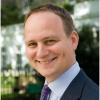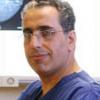46,000 women are diagnosed with breast cancer each year. It is well accepted that being aware of how your breasts normally feel and look is key to detect changes. But data shows that 60 per cent of women do not routinely check their breasts and only 40 per cent of women who do feel confident in what they're doing. Furthermore, there is misplaced anxiety about breast cancer. As cancer is partly related to ageing, the majority of patients will be over 50. Their risk of having breast cancer within the next five years is less than 1 in 100. Yet research shows that older women underestimate this risk. In a study of 500 women, 70% of over 50s put their risk at around 1 in 600.
Conversely 80% of under-25s vastly over estimate their risk of getting breast cancer. The study showed that these group of women estimated their risk of getting breast cancer in the next 5 years to be about 1 in 850 versus an actual risk of 1 in 10,000(3).
Dr Sarah Burnett, consultant radiologist at King Edward VII Hospital London and former breast cancer patient, commented: "As both a doctor and a woman who has had breast cancer, I am concerned. The last thing we want is for young women to be checking themselves too regularly and worrying unnecessarily. But the women most at risk need to do all they can to monitor their breasts and be aware of changes. Confidence is key. When women have the confidence and know what changes to look out for, breast awareness becomes as much a part of their life as good skincare."
Anyone seeking expert advice on the latest diagnostic and treatment approaches will be interested to read the articles in plain English by London breast cancer surgeon Professor Kefah Mokbel.
Abnormal, uncontrolled cell division resulting in a malignant tumour that may invade surrounding tissues or spread to distant parts of the body.
Full medical glossary
A doctor specializing in the interpretation of imaging techniques for the diagnosis and assessment of disease.
Full medical glossary








